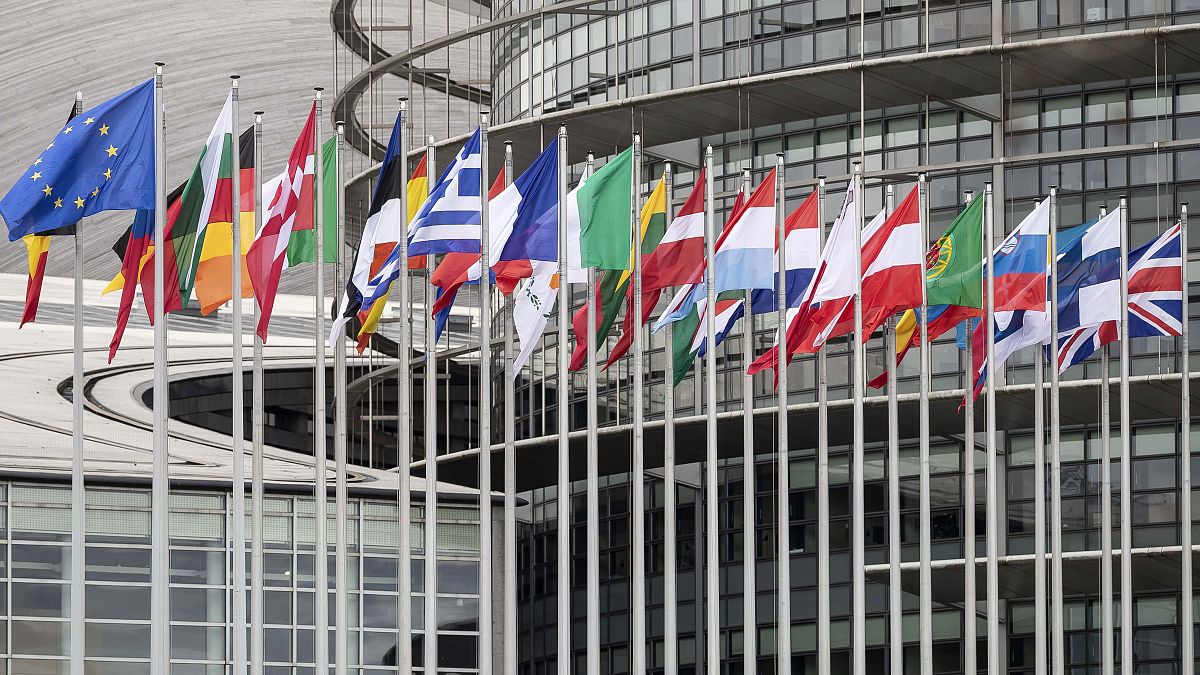Some MEPs say the EU Parliament's monthly move from Brussels to Strasbourg is risky given the coronavirus pandemic.
Several MEPs have expressed concern about holding a European Parliament session in Strasbourg amid a rise in COVID-19 cases in France.
The parliament, which sits in Brussels for the majority of the time, spends four days in the eastern French city each month.
The EU's critics often cite the controversial practice, which is estimated to cost €114 million per year, as a waste of money.
"The health issues should really come first particularly since Strasbourg was so severely hit between March and April by coronavirus and the worst thing we could possibly do as the European Parliament now is to potentially be the trigger of the second wave in Strasbourg," Daniel Freund, a Green Party MEP, told Euronews.
Freund said his staff member's mission request to go to Strasbourg has already been granted, "so it seems the parliament administration is working on the scenario that we go".
The final decision on returning to Strasbourg on September 14 will be made next week, according to two EU sources.
The German Social Democrats in Europe also spoke out against holding the plenary session in Strasbourg.
"Due to the increasing number of infections, we prefer the plenary sessions to take place in Brussels until further notice and sessions to be organised digitally, as in previous months," said Jens Geier, the German Social Democrat delegation's chairman.
But the French government has pushed for the plenary session to go ahead.
France's minister for European affairs, Clément Beaune, tweeted that he spoke with European Parliament President David Sassoli to "advance the European recovery plan as quickly as possible and defend the role of Strasbourg as the seat of Parliament".
"I've confirmed this commitment for Strasbourg to Mayor Jeanne Barseghian this afternoon. We ensure the return of the European parliament sessions as quickly as possible in the best sanitary conditions," Beaune tweeted.
At one point during the pandemic, the EU Parliament building in Strasbourg became a testing centre for COVID-19 as the region was one of the hardest-hit areas in France.
The Bas-Rhin region is currently classified as having a moderate risk for COVID-19 with an incidence rate of new cases at 38 per 100,000.
It is also on Belgium's "orange-zone" list for coronavirus, meaning that people who return to Belgium from the region are asked to undergo testing and isolate.
But the incidence rate in Brussels is even higher, and Freund points out that many MEPs come from areas that could be red zones.
"There’s a special responsibility on us to MEPs to make sure that we don’t turn into super spreaders but at the end of the day, it’s a balancing exercise. Democratic decisions need to be taken we as parliament need to continue monitoring, for example, the spending of EU money particularly in this time of economic crisis," Freund said.
It's made more difficult by the different rules across Europe. Already, some MEPs and staffers have to be tested or quarantine when travelling back from Brussels.
"European politicians should also avoid trips that are not absolutely necessary. In addition, the different quarantine and test rules in the EU member states are an obstacle for all MEPs to travel to Strasbourg," said Geier in a statement, emphasising that the EU Council should work together to establish more uniform criteria for travel across the bloc.


